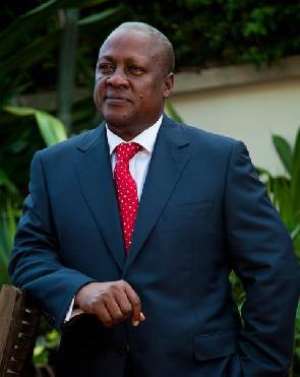
Transparent and accountable governance are in no doubt, the central pillars of governance. Transparency, is a necessary precondition for the exercise of accountability since without access to clear, accurate and up-to-date information, one cannot judge whether the standard promised has been met. Over the years, governments across the world have being putting in place, policies and programs, mostly backed by laws and enactments; aimed at strengthening transparency and accountable governance. In Ghana, one of such enactments is the Public Office Holders (Declaration of assets and disqualification) Act, 1998 (Act 550). This Act enjoins public officials, mostly, political appointees to: Declare all assets and liabilities owned by them to the Auditor General.
In accordance with Article 287 of the 1992 constitution of Ghana, any person who alleges that a public officer has contravened the Declaration of Assets and Disqualification Act can make a complain/report in accordance with this Article(287) to the Auditor General.
Paradoxically, as enjoined by the constitution granting a citizen of Ghana; the right to make a report and compel a non-declared public officer to declare his assets and gazette same with the Auditor General, the Public Office Holders (Declaration of assets and Disqualification) Act, 1998: Prohibits same citizen from knowing or verifying the exact assets so declared by the public officer.
In July 2014, I jokingly described Mr. Vitus Azeem, Executive Secretary of the Ghana Integrity Initiative (GII) as being “corrupt”. The genesis of this tag on the revered Anti-corruption crusader was christened by a discussion we had on the Assets Declaration Act. He asserted that he was compelled to swear an oath of secrecy at the Auditor General, before he was taken through the number of Public Officers who have declared and gazetted their assets with the Auditor General. By the oath of secrecy, he could not disclose the information so sought, to a third party. My argument was that, in as much as he agrees to swear the oath of secrecy, then it makes him unaccountable to the general public whose interest he serves and since this may be true, he can be described as being corrupt. Though a humorous encounter, he agreed with my argument and promised to launch a crusade on this matter to pin parliament and the Attorney General to make amends on the subject matter.
In June, 2015, I chanced on a statement published by a consortium made up of the Ghana Integrity Initiative (GII), Ghana Anti-Corruption Coalition (GACC) and SENG-Ghana, that advocated for public assets declared by officials to be published. This was welcoming and pleasant news from the Anti-Corruption giants.
However, in as much as the Act does not require the Auditor General to publish the declared assets, it is not so clear, to say, that the Auditor General can go ahead to make these assets public without contravening dictates of the Act. It is therefore necessary, per want of transparent and accountable governance, for the Parliament of the Republic of Ghana to consider a review/amendment of the Public Office Holders (Declaration of Assets and Disqualification) Act, 1998.
Anything fall-short of this, renders the current state of the law needless. Of what use has the law/Act, if the general public are kept in secrecy from assets declared by public officials?
As posited by the Constitution review committee, “…though the Constitution attempts to curb the menace of corruption through the assets declaration regime, the absence of compulsion and lack of transparency in the exercise, defeats the very purpose of the regime”. Our legislators must bear this in mind and comply with standard practice of ensuring accountability and transparency in government.
We must as a people, remind ourselves, consistently that the lack of transparency and accountability, breeds corruption in the system. This menace, if not checked, will continue to draw our nation backwards.
The media and the general public, have a huge role to play in ensuring a corrupt free Ghana.
Abdul-Mumin Sofo Yumzaa
Social commentator




 Ejisu by-election: Aduomi warns NPP against voter intimidation
Ejisu by-election: Aduomi warns NPP against voter intimidation
 High Court orders implicated four NDA officials to present defence
High Court orders implicated four NDA officials to present defence
 Let’s all be matured, patriotic to have a peaceful election this year – Dampare ...
Let’s all be matured, patriotic to have a peaceful election this year – Dampare ...
 Mahama's administration saw thievery that knew no bounds; stole from market wome...
Mahama's administration saw thievery that knew no bounds; stole from market wome...
 GRA/SML deal: Always read the stories behind the headlines or you'd look stupid ...
GRA/SML deal: Always read the stories behind the headlines or you'd look stupid ...
 GRA/SML Contract: It takes some 'wild' boldness for a president to make this dec...
GRA/SML Contract: It takes some 'wild' boldness for a president to make this dec...
 Elisu By-election: "If you call yourself a man, boo Chairman Wontumi again" — Bo...
Elisu By-election: "If you call yourself a man, boo Chairman Wontumi again" — Bo...
 Fuel tanker driver escapes with his life after tanker goes up in flames near Suh...
Fuel tanker driver escapes with his life after tanker goes up in flames near Suh...
 Uniform change: ‘Blue and white are brighter colours’ — Kwasi Kwarteng explains ...
Uniform change: ‘Blue and white are brighter colours’ — Kwasi Kwarteng explains ...
 MoE not changing all public basic school uniforms but only newly built ones — Kw...
MoE not changing all public basic school uniforms but only newly built ones — Kw...
